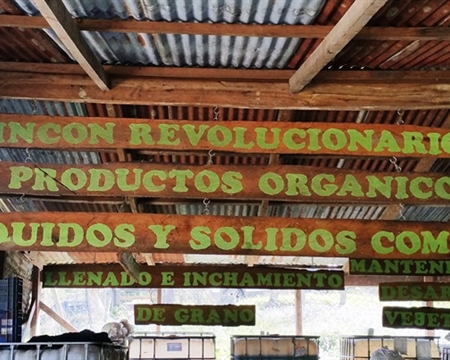HONDURAS FT-FLO/USA ORGANIC COMSA MANOS DE MUJER HONEY SHG EP – 33452 – GrainPro Bags – May 2024 Shipment – RCWHSE
Position Future Shipment
Bags 127
Warehouses Oakland
About this coffee
Grower
Miriam Elizabeth Pérez and Karla Patricia Portillo | Café Organico Marcala, S.A. (COMSA)
Altitude
1300 – 1378 masl
Variety
Catuai, Icatu, Ihcafe 90, and Lempira
Soil
Clay minerals
Region
Marcala, La Paz
Process
Honey processed, depulped and immediately dried on raised screens in the sun
Harvest
December - March
Certification
Fair Trade (FT FLO/USA) | Organic
Coffee Background
Want to support women in coffee? Here is one of those rare opportunities where all that is good about coffee intersect. Simply a trifecta of: organic farm management practices; traceable to women producers in the Marcala region, a protected designation of origin (DENOMINACION DE ORIGEN CAFE DE MARCALA); and a meticulous post-harvest standard of hand sorting cherry, cherry floating to remove less dense and damaged beans, proper fermentation, and long drying times. It starts with a concept called Finca Humana (the Human Farm) at Café Organico Marcala, S.A. (COMSA), where the wellbeing of humans is the core objective and educating more than 1,500 producer-members to successfully live in harmony with nature is everywhere. At La Fortaleza, the COMSA biodynamic demonstration farm, the focus of transferring knowledge takes place through week-long seminars called Pata de Chucho (pawprints left by a stray dog), which aptly reveals COMSA’s dogged exploration for human productivity in harmony with nature. The trailblazing ideas for using organic matter to productively cultivate high quality coffee is only a sliver of what COMSA teaches about the power of nature through the Finca Humana philosophy. COMSA dedicates funding from the proceeds of coffee sales to run a cutting edge International school dedicated to filling children’s minds with possibility, and training them to be the future leaders of Finca Humana. And COMSA has significantly increased the participation of women within the organization, which has resulted in an active women’s group that processes their own community lots called Manos de Mujer. This particular lot is a honey processed coffee, which comes from 2 farms owned by Miriam Elizabeth Pérez and Karla Patricia Portillo.





